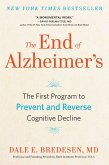"After getting her master's in clinical psychology, Dasha Kiper took a leave of absence from school and began to look after a Holocaust survivor with middle-stage Alzheimer's. For a year, she lived with the emotional strain of caregiving, learning at firsthand how disorienting and painful it can be to look after a person whose condition blatantly disregards the rules of time, order, and continuity. Based on the subsequent decade she has spent counseling caregivers of dementia patients, Kiper offers an entirely new approach to understanding the relationship between patients and those tending to them. In these poignant but unsentimental stories of parents and children, husbands and wives, Kiper dispels the myth of the perfect caregiver. Relying on a wide breadth of cognitive and neurological research and borrowing from philosophy and literature, Kiper explores the existential dilemmas created by this disease: a man believes his wife is an impostor; a woman's imaginary friendships with famous authors drive a wedge between her and her devoted husband; another woman's childhood trauma emerges to torment her son; a man's sudden, intense Catholic piety provokes his wife. As painful as these conflicts are for caregivers, resolving them has its own cost. In order to find peace, caregivers try to walk an impossibly fine line between acknowledging what the disease has taken from someone they love and recognizing what it has left"--
Hinweis: Dieser Artikel kann nur an eine deutsche Lieferadresse ausgeliefert werden.
Hinweis: Dieser Artikel kann nur an eine deutsche Lieferadresse ausgeliefert werden.








